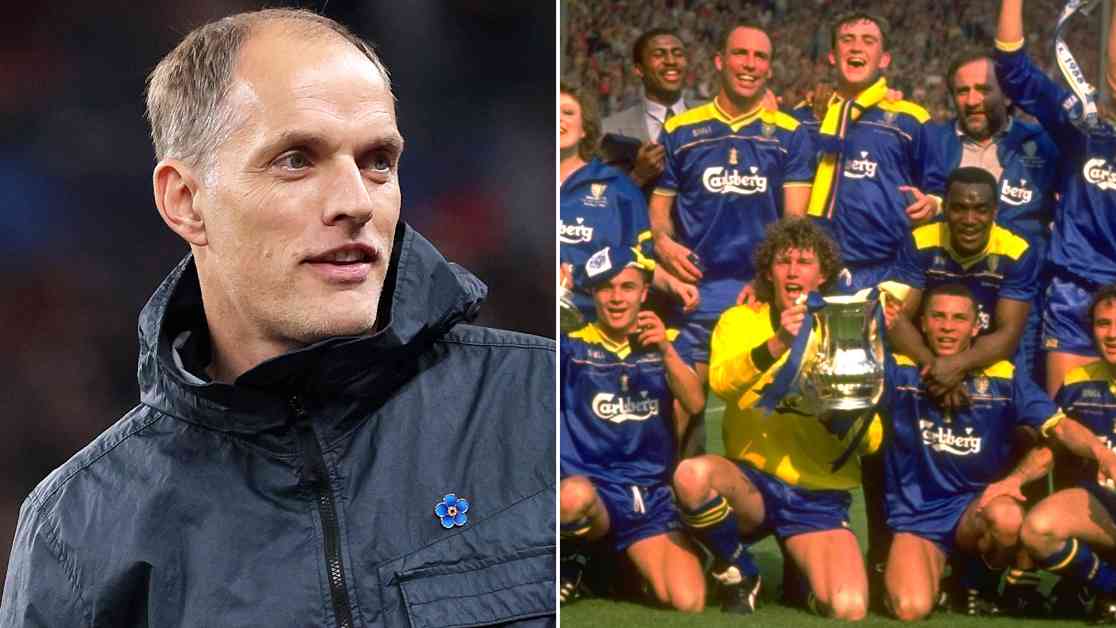Thomas Tuchel is really shaking things up with the England squad as they gear up for the World Cup. He’s taking a page out of the Crazy Gang’s playbook, encouraging the Three Lions to embrace long throws and big goal-kicks in their quest for their first major trophy since way back in 1966.
The Crazy Gang, made famous by Wimbledon in the 1980s and 1990s, were known for their direct and physical style of play. Not only did they climb up the ranks from non-league to the top tier, but they also pulled off one of football’s greatest upsets by defeating Liverpool in the 1988 FA Cup final at Wembley. Former Dons manager Dave Bassett believes Tuchel is onto something with his tactics, stating that the purists have been living in a fantasy world and that even the likes of Manchester City use the long ball strategy more often than not. According to Bassett, going forward with purpose and getting players running behind the defense is key to rattling the opposition. He emphasizes the effectiveness of long throws in creating chaos and scoring opportunities, dismissing the notion that playing sideways or backwards leads to goals.
Bassett also supports Tuchel’s decision to leave out Jude Bellingham from the latest squad, suggesting that individual players cannot hold the team hostage and disrupt team spirit. He stresses the importance of alignment with the manager’s vision and system, even if it means leaving out talented players who are not fully committed. Another key figure in the Crazy Gang era, Bobby Gould, highlights the impact of adding quality to the team rather than starting from scratch. He recalls the mind games played by ex-England coach Don Howe, such as manipulating time to get under the skin of opponents. Gould sees parallels between Tuchel’s approach with England and the successful tactics employed by Wimbledon in their glory days, emphasizing the psychological and physical impact of quick, direct play.
Lawrie Sanchez, the hero of Wimbledon’s Wembley triumph, reflects on the unity and resilience of the Crazy Gang, noting that their teamwork and commitment to set-plays set them apart. While acknowledging the challenges of replicating such camaraderie in modern football, he believes in the enduring value of strategic preparation and team cohesion. Nigel Winterburn, a former Wimbledon player, recalls the team’s underdog mentality and fierce determination to prove critics wrong. He shares anecdotes of unconventional bonding experiences with the British Army, highlighting the unorthodox methods used to build team spirit. Despite their rough exterior, Winterburn reflects on the deep bond that united the players and fueled their underdog success.
In conclusion, Tuchel’s embrace of Crazy Gang tactics with the England squad has sparked nostalgia for the glory days of Wimbledon. The direct, physical style of play and emphasis on teamwork and set-plays continue to resonate with former players and fans alike. As England prepares for the upcoming World Cup, the echoes of the Crazy Gang serve as a reminder of the power of unity, determination, and unconventional strategies in achieving success on the football pitch.
















